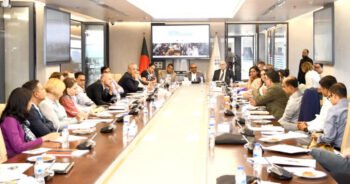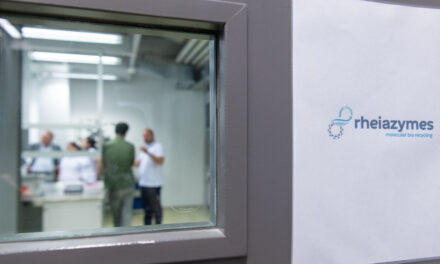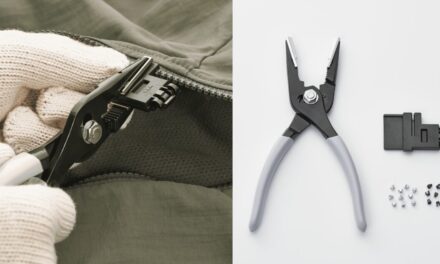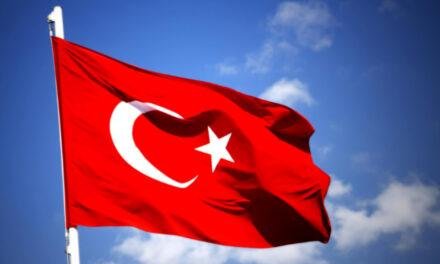 A diverse group of stakeholders from the garment and textile industry gathered at BGMEA Complex in Dhaka on September 4 to discuss the prospects of circular economy in the country. The roundtable was attended by industry leaders, policymakers, brands, development partners, suppliers, recyclers, and bankers.
A diverse group of stakeholders from the garment and textile industry gathered at BGMEA Complex in Dhaka on September 4 to discuss the prospects of circular economy in the country. The roundtable was attended by industry leaders, policymakers, brands, development partners, suppliers, recyclers, and bankers.
They discussed the challenges and opportunities of transitioning to a circular economy in Bangladesh, as well as the way forward to build a circular industrial ecosystem in the country. The roundtable was as a part of a dialogue titled “Switch to Upstream Circularity: Pre-consumer Textile Waste in Bangladesh.”
This event was organized under the Switch to Circular Economy Value Chains project (SWITCH2CE), co-funded by the European Union and the Government of Finland. SWITCH2CE is led by United Nations Industrial Development Organization (UNIDO), in collaboration with Chatham House, Circle Economy, and European Investment Bank, and supports the switch to circularity in selected global value chains.
In his opening remark, Faruque Hassan, President of BGMEA, thanked all the participants for joining the discussion, saying the event would pave the way for bringing thoughts, ideas and experiences together in order to pursue a common goal – to transform the industry into a circular manufacturing hub.
H. E. Jeremy Bruer, Australian High Commissioner to Bangladesh; Mark Draeck, Chief Technical Advisor on SWITCH2Circular, UNIDO; Holly Syrett, Director of Impact Programmes & Sustainability at Global Fashion Agenda; Nin Castle, Chief Program Officer- Co-Founder, Reverse Resources; Abdur Rahim Khan, Additional Secretary, Ministry of Commerce; Mahbub ur Rahman, CEO, HSBC Bangladesh; Enamul Huque, Managing Director and Country Head of Corporate, Commercial and Institutional Banking at Standard Chartered Bank; Humaira Azam, Managing Director & Chief Executive Officer of Trust Bank, joined the roundtable.
Moderated by Barrister Vidiya Amrit Khan, Director, BGMEA, the discussion was also attended by representatives from brands including H&M, BESTSELLER, KIABI, Kmart Australia, Primark, Decathlon, GIZ and other stakeholders.
They discussed how Bangladesh could embrace circular practices, reduce the environmental footprint of the textile sector, create new job opportunities, and bolster our international reputation as a hub for sustainable manufacturing. The discussants stressed the need for leapfrogging in terms of technology, innovation, and investment in circularity.
They also highlighted the importance of strengthening partnerships between buyers and suppliers to accelerate the transition towards a circular economy. The participants spotlighted the issue of price in encouraging and supporting suppliers in integrating circularity in their industrial operations.
Another key point of discussion was on collaborative approach of all stakeholders to develop an ecosystem for driving circularity in Bangladesh. They opined that by recycling pre-consumer textile waste Bangladesh could reap economic, social and environmental benefits and strengthen its position in the global market.





















